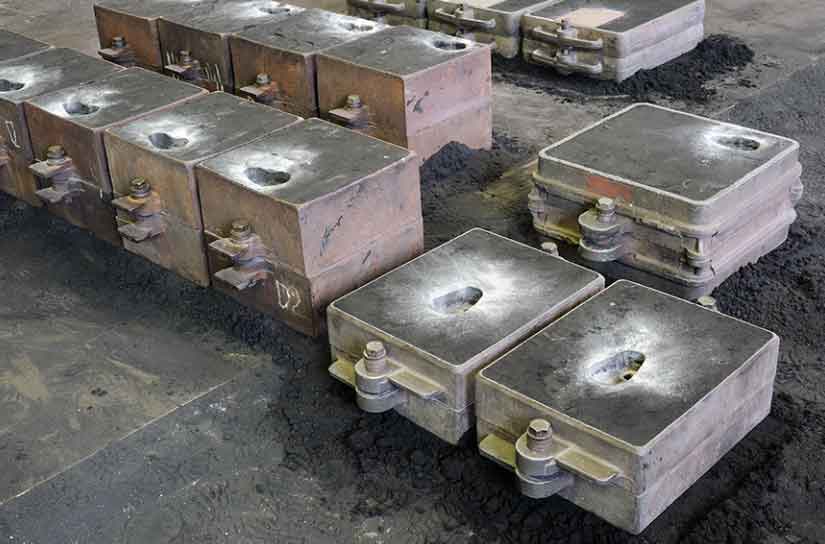
Resin sand casting is a popular manufacturing process used for small-scale production in various industries. It involves creating molds made of a mixture of resin and sand, which are then used to produce metal parts. Here are some benefits and considerations of resin sand casting for small-scale production:
Benefits:
- Cost-effective: Resin sand casting is a relatively inexpensive method compared to other manufacturing processes like die casting or investment casting. The materials required for the molds, such as resin and sand, are readily available and affordable.
- Flexibility: Resin sand casting offers flexibility in terms of design and production. It allows for complex geometries and intricate details to be reproduced accurately in the final metal parts. This makes it suitable for producing parts with varying shapes and sizes.
- Quick turnaround: The resin sand casting process is relatively fast, especially for small-scale production. Once the molds are prepared, the casting process can be completed relatively quickly, enabling faster production cycles and quicker product delivery.
- Versatility: Resin sand casting can be used with various metals, including aluminum, brass, bronze, and cast iron. This versatility allows for the production of a wide range of components and parts for different industries.
Considerations:
- Surface finish: Resin sand casting may not provide the same level of surface finish as some other manufacturing processes. The molds may result in a slightly rough surface texture, which may require additional finishing processes like sanding or polishing to achieve the desired smoothness.
- Mold preparation: The process of creating the molds for resin sand casting requires careful preparation. The sand and resin mixture needs to be properly compacted and cured to ensure the mold’s integrity. This step may require skilled operators and specialized equipment.
- Tooling and equipment: While resin sand casting is generally considered a cost-effective process, there is an initial investment required for tooling and equipment. This includes patterns for creating the molds, as well as equipment for mixing, compacting, and curing the resin and sand mixture.
- Limited batch sizes: Although resin sand casting is suitable for small-scale production, it may not be as efficient for large quantities. The process is better suited for lower volume production runs due to the time required for mold preparation and casting.
- Environmental considerations: Resin sand casting involves the use of resin, which can have environmental implications. Proper disposal of used resin and sand mixture and managing any emissions or waste generated during the process are important considerations for sustainability and compliance with environmental regulations.
It’s worth noting that the specific benefits and considerations may vary depending on the application, industry, and specific requirements of the project. Therefore, it is essential to evaluate these factors in the context of your specific production needs before deciding on resin sand casting as the manufacturing process for your small-scale production.
